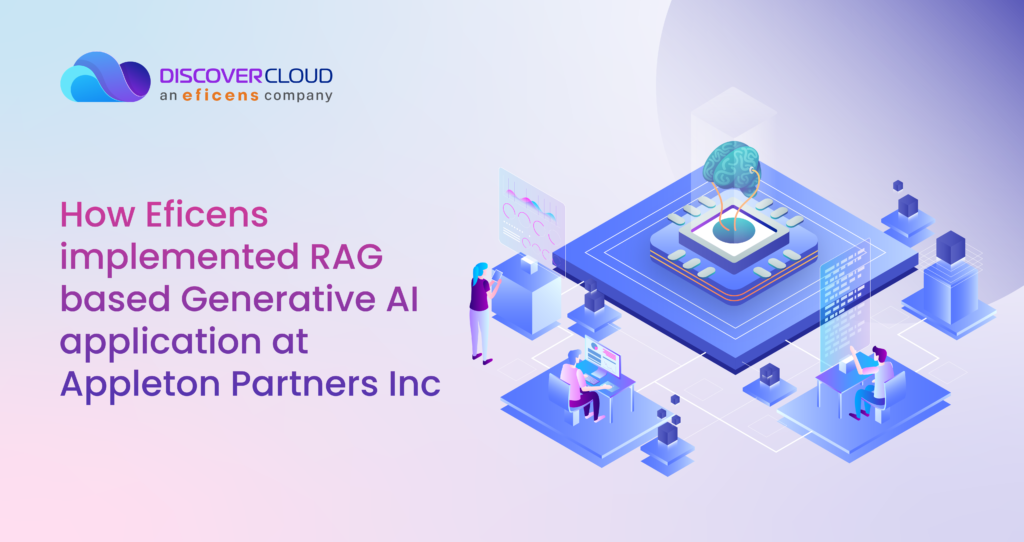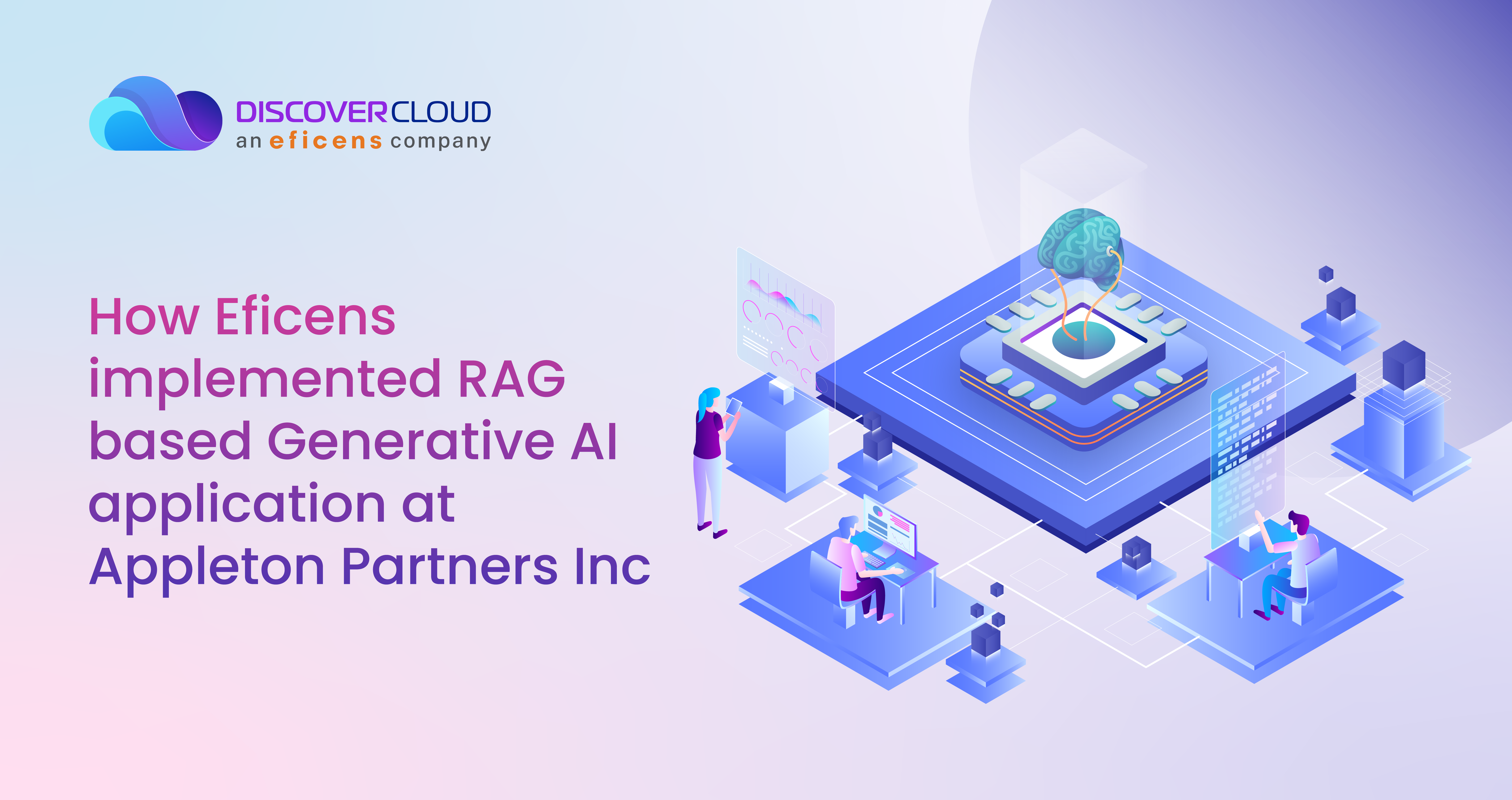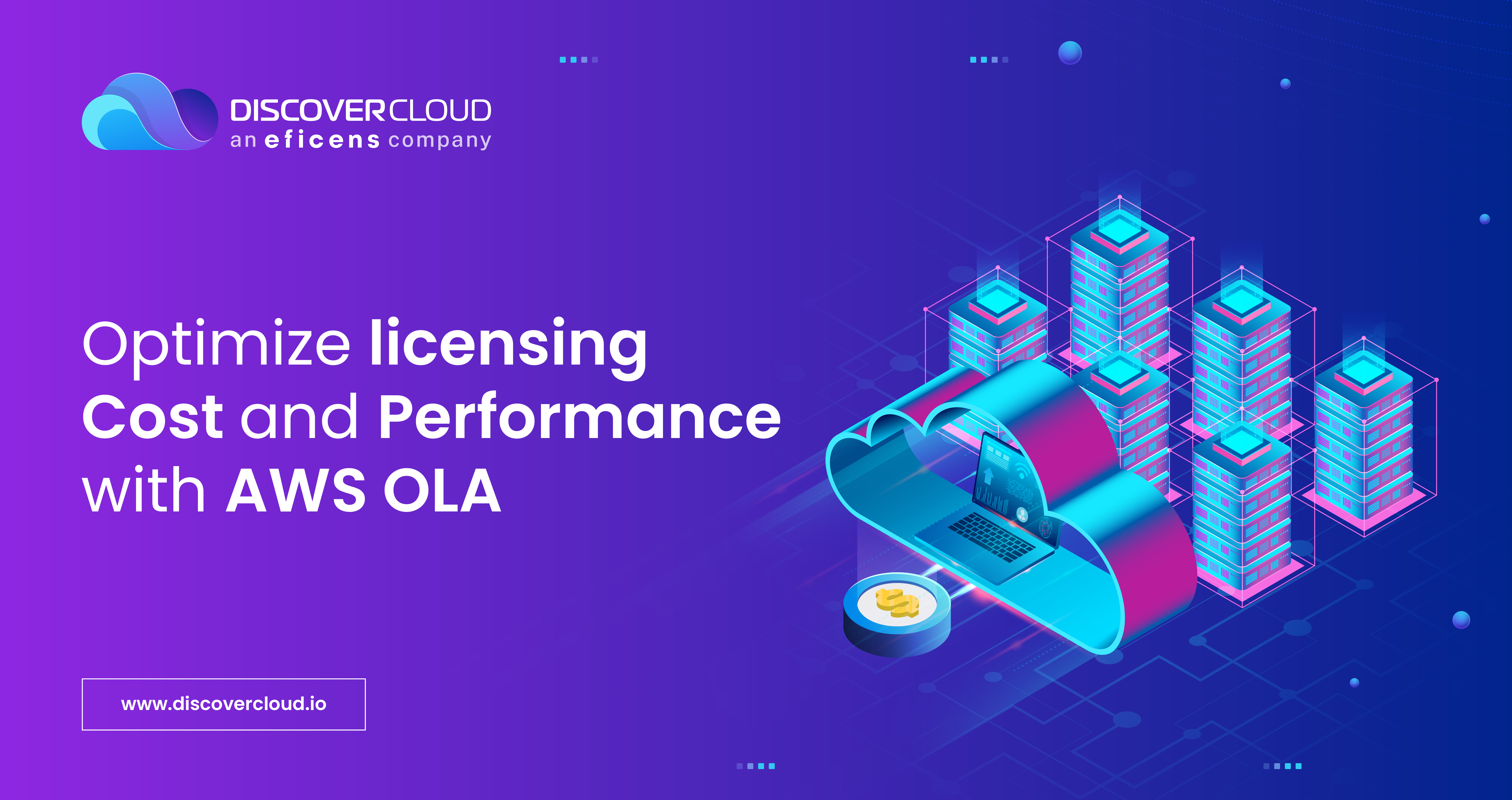Appleton Investments is a financial company focused on investment management tailored for individual financial needs. Their business processes around document processing and creation of new proposals for end customers were one of the pain areas. Eficens stepped in as Appleton’s strategic partner, bringing the power of their Generative AI Expertise across solutioning considering the key business requirements in terms of speedy document processing at scale. Eficens also ensured that their solution provides an agnostic approach in building this platform for Appleton. They used Retrieval Augmented Generation pattern of architecture in order to provide enterprise specific context with data connected from across the enterprise data stores such as transactional systems (relational databases), unstructured data in S3, MS SharePoint and CRM data.
Key Challenges:
- Data extraction and structuring: – Financial documents often come in various formats (PDFs, scanned images, spreadsheets, etc.) with unstructured data, making it difficult to extract and standardize the information.
- Contextual understanding: – Financial documents can be complex, with technical jargon and domain-specific terminology, making it challenging for traditional rule-based systems to accurately interpret the content.
- Automated decision-making: – Financial institutions often need to make quick and informed decisions based on the information in the documents, but manual review can be time-consuming and prone to human errors.
- Regulatory compliance: – Financial services are heavily regulated, and institutions must ensure that their document processing adheres to various compliance requirements, such as data privacy, anti-money laundering (AML), and know-your-customer (KYC) regulations.
- Scalability and efficiency: – Financial institutions often must process a large volume of documents, which can be a labour intensive and time-consuming task, especially during peak periods.
Solution:
Challenges outlined above are often solved by Retrieval Augmented Generation (RAG) pattern of architecture for Generative AI. Recognizing the increasing need for Vector Store Selection Guidance in this domain, Appleton Partners, Inc. has successfully implemented a Generative AI application for summarization of documents on AWS with Eficens Engineering team’s specialized skills and today, we’ll delve into their approach.
Vector data stores play a pivotal role in RAG pattern implementations, offering scalability and security necessary for handling vast amounts of domain-specific information. With numerous options available, selecting the right vector data store becomes paramount. Here’s where Eficens Engineering team’s expertise shines, as they’ve navigated through various considerations to make informed decisions.
Key factors which were when choosing a vector data store include:
- Latency of Response
- Level of Product Quantization
- Scale of Vectors to be Stored
- Dimensions of Generated Vectors
- Supported Algorithms (e.g., HNSW, IVF)
- Similarity Metrics Supported
Solution Architecture
Designing an efficient ingestion pipeline for embeddings, along with prompt and context engineering, are crucial steps in the process. But Eficens has streamlined this process further with the help of AWS’s latest offering, Knowledge Bases (KB) for Amazon Bedrock. At the recently concluded re:Invent 2023, AWS announced the General Availability of KB for Amazon Bedrock, simplifying the evaluation of multiple vector stores.
Here’s a step-by-step guide on how the leading financial services company leveraged KB to set up their vector data store seamlessly:
- You start by naming the Knowledge Base relevant to one of the Business Units to whose data corpus this was being created for.
- Created a Data Source Data source by ingesting data from an S3 location where all the corpus was available.
- The workflow on KB offers a choice between different types of vector stores, including Amazon OpenSearch Serverless (OSS) for new deployments or pointing to existing deployments of OSS, Aurora PostgreSQL, Pinecone, or Redis Enterprise Cloud.
- After reviewing the setup, the Knowledge Base is created, with the vector data store provisioned in a few minutes. Titan Embeddings G1 model converts the knowledge corpus into embeddings and stores them into the vector data store.
With the data sync completed, users could initiate initial testing of the Knowledge Base using the user interface and integrations available with LLMs Claude Models. And just like that, Eficens has set up their vector data store within minutes, ready to integrate with agents and applications using SDKs and APIs provided by AWS.
Outcomes:
- Cost Reduction: Appleton Investment saw a 30% reduction in their TCO with Eficens’ engagement as the manual tasks were being largely automated.
- Accelerated Innovation: With the beta version available now to limited users, Appleton & Eficens plan to further improve accuracy, look at fine tuning approaches on the road map. They are also planning to completely automate the document processing by including OCR along with Generative AI processing to provide in-document summaries, Q&A capabilities etc.
Conclusion
Eficens’s successful implementation of Generative AI Apps on AWS showcases the power of leveraging innovative technologies to meet customer demands efficiently. By embracing solutions like Knowledge Bases for Amazon Bedrock, companies can accelerate their AI initiatives and stay ahead in today’s competitive landscape. So, whether you’re embarking on your AI journey or looking to enhance existing capabilities, Eficens’s experience serves as a guiding light to help you navigate the complexities of AI implementation on AWS.
Looking to solve a similar problem?
Reach out to us to get started with this transformation – Contact Eficens.




